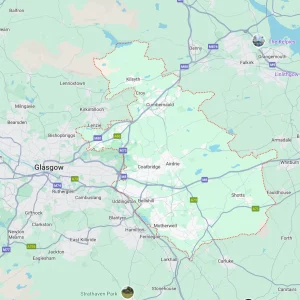Sponsored Links
O2 Survey Claims Slow UK Broadband More of a Concern than Job Cuts
Posted: 24th May, 2010 By: MarkJ
 It's not the "big issues" like NHS waiting times, investment in public transport or job cuts that frustrates the UK on a day-to-day basis but the smaller daily frustrations such as slow internet connections and unfriendly customer service, at least according to the latest survey from O2 .
It's not the "big issues" like NHS waiting times, investment in public transport or job cuts that frustrates the UK on a day-to-day basis but the smaller daily frustrations such as slow internet connections and unfriendly customer service, at least according to the latest survey from O2 .Some 41% of people stated that they find slow internet connections to be their biggest daily frustration, miles ahead of the 14% who stated NHS waiting times as the biggest annoyance. Further to this, 36% said that unfriendly customer support was their biggest daily frustration compared to the 26% who said crime and the 18% of respondents who stated job cuts as theirs.
The survey of 2,040 people, which was carried out on 3rd May 2010, coincides with the launch of O2’s 'Niggles and Narks' advertising campaign, which aims to highlight some common broadband ISP frustrations with performance and customer support (here).
Felix Geyr, Head of O2 Home Broadband, says:
"It’s clear from this poll that the British public is getting increasingly frustrated with the UK’s broadband services. As the new government comes in, and it looks to get the UK online and connected by 2020, we think that now is the time for all ISP’s to change their ways and try to eliminate as many of these daily frustrations for our customers as we can."
"It’s clear from this poll that the British public is getting increasingly frustrated with the UK’s broadband services. As the new government comes in, and it looks to get the UK online and connected by 2020, we think that now is the time for all ISP’s to change their ways and try to eliminate as many of these daily frustrations for our customers as we can."
The vast majority (73%) also stated that they would be pleased if the new coalition government solved these problems in their first 100 days. Most people would also be pleased if they could fly like superman (minus the coloured cape) but it's never going to happen. We also find it hard to believe that people would view slow broadband as a more pressing issue than the loss of their own job, although the structure of O2's survey questioning is a little ambiguous.
On the bright side O2 does at least fair the best of its mainstream "big ISP" competitors, at least according to the various awards that it continues to win. It should be noted that most of those awards usually only reflect the largest market players and not smaller providers.
Search ISP News
Search ISP Listings
Search ISP Reviews
Latest UK ISP News








Cheap BIG ISPs for 100Mbps+
150,000+ Customers | View More ISPs
Cheapest ISPs for 100Mbps+
Modest Availability | View More ISPs
Latest UK ISP News
Helpful ISP Guides and Tips
Sponsored Links
The Top 15 Category Tags
- FTTP (6790)
- BT (3879)
- Politics (3069)
- Business (2764)
- Openreach (2661)
- Building Digital UK (2508)
- Mobile Broadband (2470)
- FTTC (2140)
- Statistics (2124)
- 4G (2089)
- Virgin Media (2019)
- Ofcom Regulation (1778)
- 5G (1727)
- Fibre Optic (1603)
- Wireless Internet (1593)
Sponsored
Copyright © 1999 to Present - ISPreview.co.uk - All Rights Reserved - Terms , Privacy and Cookie Policy , Links , Website Rules
































